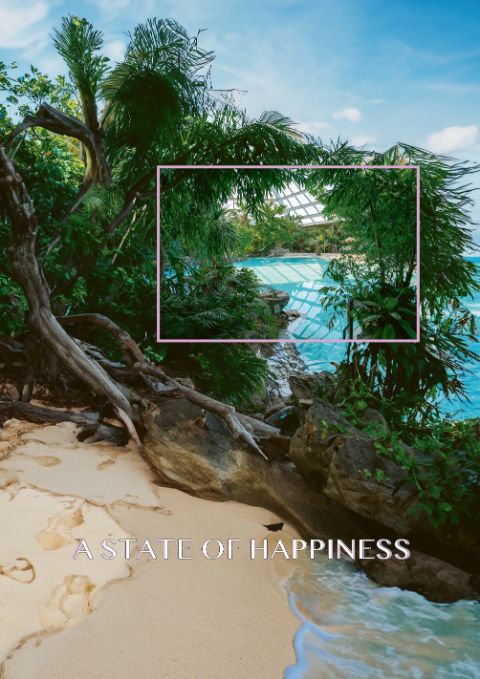Niklas Goldbach

Niklas Goldbach, A State of Happiness (2024). © VG Bild-Kunst, Bonn 2025, courtesy of the artist
In his photographs, videos, and installations, Niklas Goldbach explores the ambivalence of architectural utopias—their promise of terrestrial paradise and their dystopian realities. The spaces he documents condense the darker aspects of postmodern life, revealing how architecture functions both as a stage for and amplifier of neo-liberal and neo-colonial social structures. With his long-term photographic project Permanent Daylight, Goldbach has been exploring the disciplining and control of space and the body since 2013. The photographs, taken around the world, show man-made places—a large-scale housing project in a suburb of Tehran, a decommissioned wave power station in Øygarden, a luxurious shopping centre in Lisbon, a jail in Stuttgart—that bear visible traces of their past or the first signs of their impending transformation. They are silent testimonies to the worldviews and political systems from which they emerged. Without ever depicting people, the project questions the illusion of universal mobility and reveals the social inequalities of the globalized world. The title ironically refers to the colonial myth of ‘the empire on which the sun never sets.’ The mixed-media installation A State of Happiness (2024) forms part of the broader multimedia project The Paradise Machine (2022–24), in which Goldbach investigates the Center Parcs resorts of Western Europe. These standardized holiday destinations represent not only an economic leisure model, but also a sociopolitical ideal: a protected and regulated space for the reproduction of bourgeois rituals. The idea of the family as the nucleus of the nation—a central motif in twentieth-century right-wing conservative thought—appears here cloaked in consumerism and recreation. Center Parcs founder Piet Derksen (1913–96) supported initiatives that promoted Catholic and right-wing ideologies, often with missionary intent, particularly towards former European colonies. The history of Center Parcs is thus also shaped by the legacies of European colonialism and the entanglements between European fascism and the Catholic Church—family, religious dogma, and nationalism reinforcing one another. In A State of Happiness, Goldbach used an early version of image-generarating AI—at the dawn of this new era in 2023—to extend his photographs of indoor swimming pools at various Center Parcs. Everything within the pink frames is real, everything beyond it AI-generated. At times, the system renders these leisure architectures as ruins—paradise reveals ist fragility, with decay already inscribed.
WORKS IN THE EXHIBITION: The Next Day, from the series Permanent Daylight (2019), 7 archival pigment prints on fine art paper, framed, each 76.4 × 51.2 cm. Conceived for and co-produced by Bergen Assembly; A State of Happiness (2024), mixed-media installation, 12 digital prints on chipboard, cable straps, metal hoardings, 200 × 350 × 70 cm. Courtesy of the artist